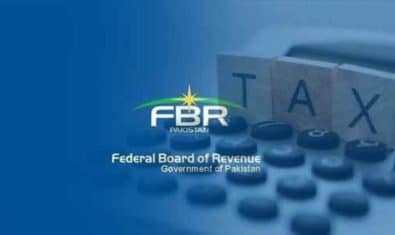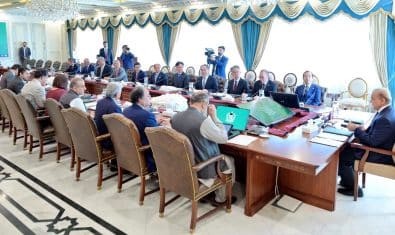By Mohib Hassan
Pakistan has been a country of immense entrepreneurial spirit. At the time of the country’s founding, we had 5 listed companies and less than 1000 industrial units; today, Pakistan has 58 listed companies and around 150,000 registered companies.
Since 1947, many beacons of entrepreneurship invested in Pakistan and set up startups to assist the fledging country. From the Bhimjees to the Ispahanis, several prominent, as well as small-time entrepreneurs, took big risks which speaks to the entrepreneurial spirit of the people of Pakistan since its inception.
Of late, the country has noticed a boom in a new age of startup culture, one which closely mirrors what we see from high-growth potential companies around the world. The boom of these types of companies in nascent ecosystems can generally be attributed to a range of internal and external factors, some of which are noted below.
The first emergence of these types of companies was noted in the late 70s and early 80s when companies like Systems Ltd and a handful of other technology companies were founded. Many Pakistanis fondly remember the floppy drive viruses that innovative Pakistani companies created in the late 80s and early 90s. This era of companies was founded by early visionaries who truly dreamed beyond their own borders. Such individuals provide the much-needed impetus for investment in such sectors, on a modern pitch deck this can be considered to be the ‘Team Slide’. In early-stage ecosystems, all-star founders secure funding that helps them survive and post numbers that we are still seeing today in seed and series A rounds.
The second emergence of high-growth companies in the late 90s occurred due to a combination of factors, like the Y2K bug along with the arrival of the BCCI ‘mafia’ – Pakistanis who had worked for Bank of Credit & Commerce International, the 7th largest private bank in the world in the early 80s where 80% of the management were Pakistanis. These individuals had gained experience in building large companies and they put their skills, capital and connections to work to invest and create what we today call ‘Software Houses’. Many of these individuals built companies that have fueled the growth we see today by training Pakistanis in technical knowledge and building early products. PASHA, Computer Science Society of Pakistan and other organizations were set up which consequently played a massive role in helping inform government actions over the past few decades.
As we see from the examples above, the early stages of the Pakistani startup ecosystem’s boom was primarily driven by a few hardy folk with a vision of the future and in most cases a proven track record of success and failures. We see many similarities in today’s ecosystem as well with a few notable exceptions.
Rising interest in Pakistani startups can still be attributed to the efforts of a few. Atif Awan has played a major part in the recent meteoric rise of investment flowing into the country from the heart of VC capital land in San Francisco. Of companies that have raised funding, a majority of founders either have international experiences or have the blessings of those giants of the present (former employees of Careem and a few others). Foreign investments, quarter after quarter, even in contractionary markets shows that the work done by these individuals has shored up investor confidence the world over and perhaps placed Pakistani startups on the world stage. Pakistani startups have recently increased their representation in world-class incubators and accelerators like Y Combinator in Silicon Valley amongst others as well, once again displaying the ever-improving health of the ecosystem.
The government too must be lauded for a variety of initiatives that have provided the guardrails for investments in such sectors due to some phenomenal work by Reza Baqir and the team at the State Bank with regulations for smooth foreign investments to flow in and out of the country. The financial support provided to universities to set up incubation centers has also attributed to the increasing number of startups coming to the fore. STZs (Special Technology Parks) are also being set up by the government to further amplify and facilitate even larger companies to invest in Pakistan. Community builders have also capitalized on helping would be founders and individuals who have an appetite to change something about the world. All of these initiatives have massively contributed to the much-needed slow-burning fuel that raises the maturity of the ecosystem, an investment in future generations, and to future market shakers.
And finally peace; it is an often ignored aspect of a people’s state of mind when we ourselves compare the local ecosystem to others abroad. Opposing points of view are often supported by comparisons to countries like Indonesia, UAE, and even India, with the assumption of ceteris paribus. This is a statement that couldn’t be further from the truth. Pakistan has been at the forefront of geopolitical unrest in the early 90s with the Cold War and Russian invasion of Afghanistan, early 2000s with the rise of the Taliban all the way to the 2020s. One can argue that yet again we are at the forefront of another impending war, one against climate change. Relatively recent peace with our neighboring countries has allowed the country to improve its image, ‘investibility’ and attract risk-seeking founders to solve problems that the common man faces daily.
Much like the saying of old, we stand on the shoulders of giants. At the end of the day, the ecosystem we see today is the hard work of the men and women behind the institutions, companies, investors, mentors, volunteers and diplomats who dare to dream of a different vision of the future, one that is our responsibility to fulfill and take forward. It would be remiss to ignore the increasing number of first-time founders taking the plunge in Pakistan. In the paraphrased words of Steve Jobs, once you understand the world around you was created by people no smarter than you, it is then that you embrace it, change it, improve it, and make your mark on it.
It is my firm belief that as that lesson dawns upon more of my fellow Pakistanis the ecosystem will continue to achieve many great things in the future. We must remain humble, keep learning and, above all else, stay hungry, and stay foolish.
About the Author
Mohib Hassan is a mathematics and actuarial science graduate from the University of Edinburgh and Boston University. He is currently working at the leading e-ticketing platform (Sastaticket.pk) as Chief Operating Officer.























What a load of rubbish.